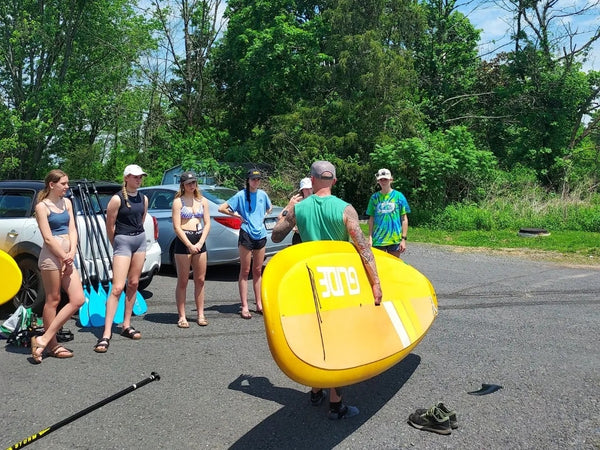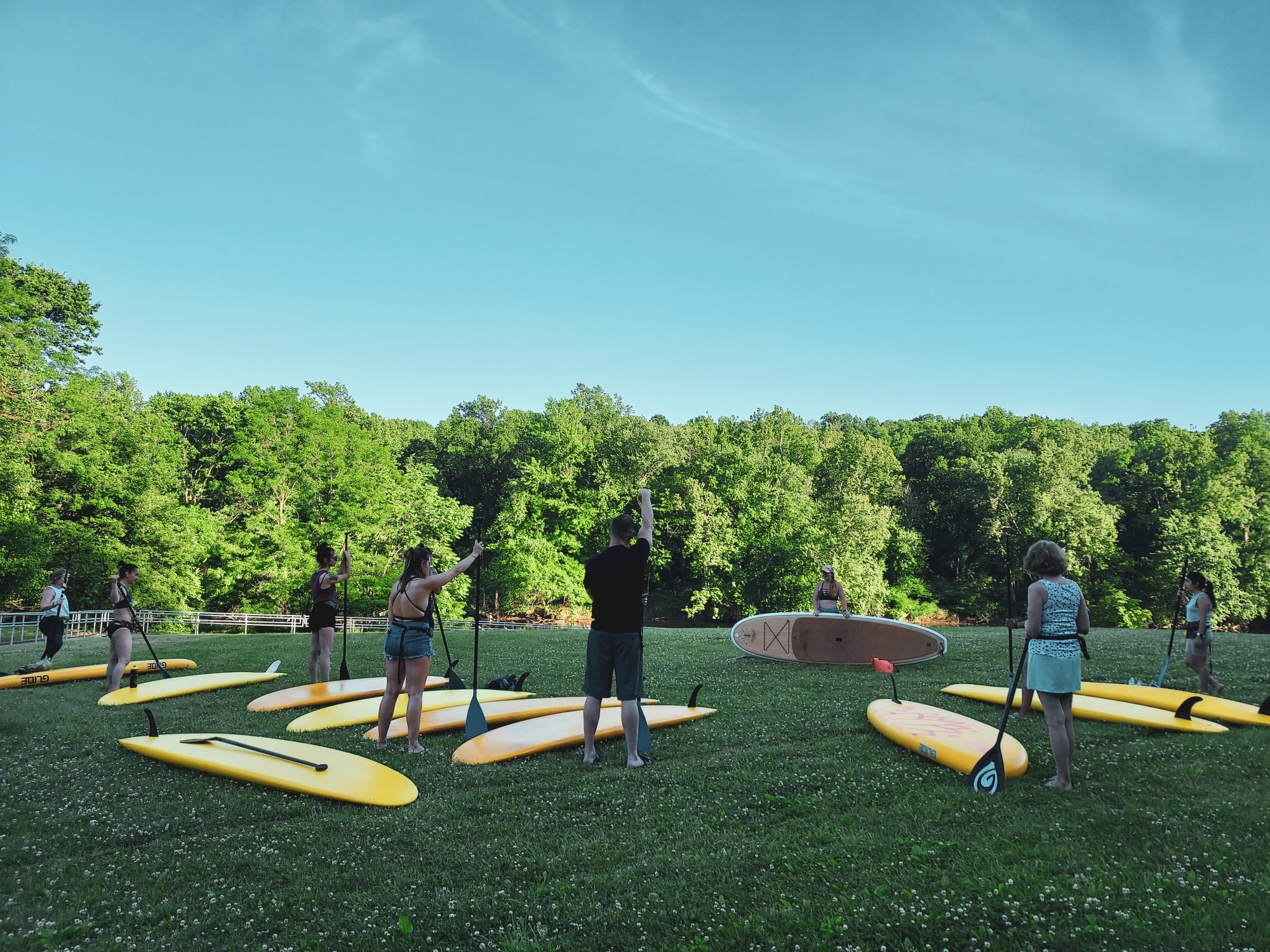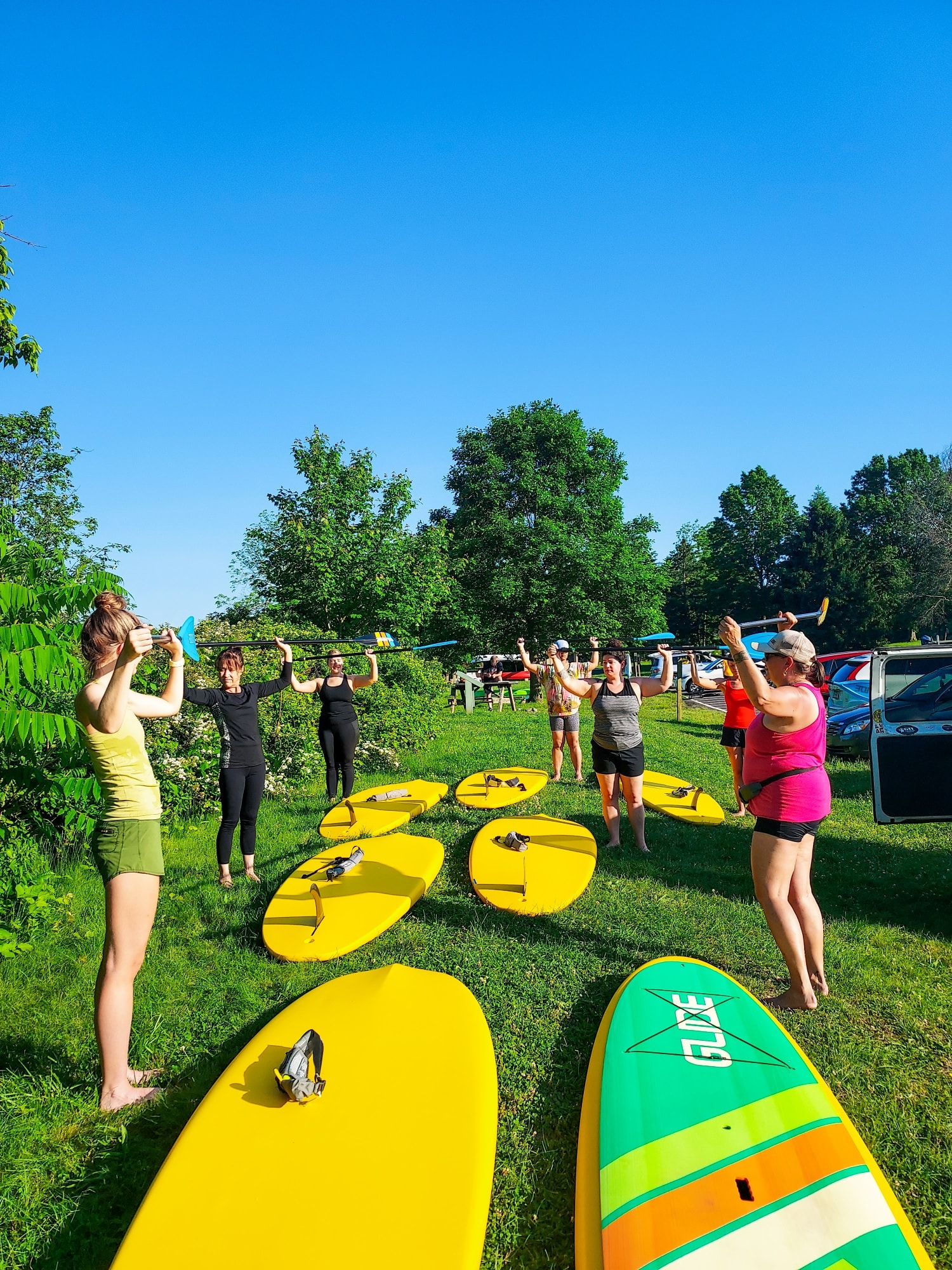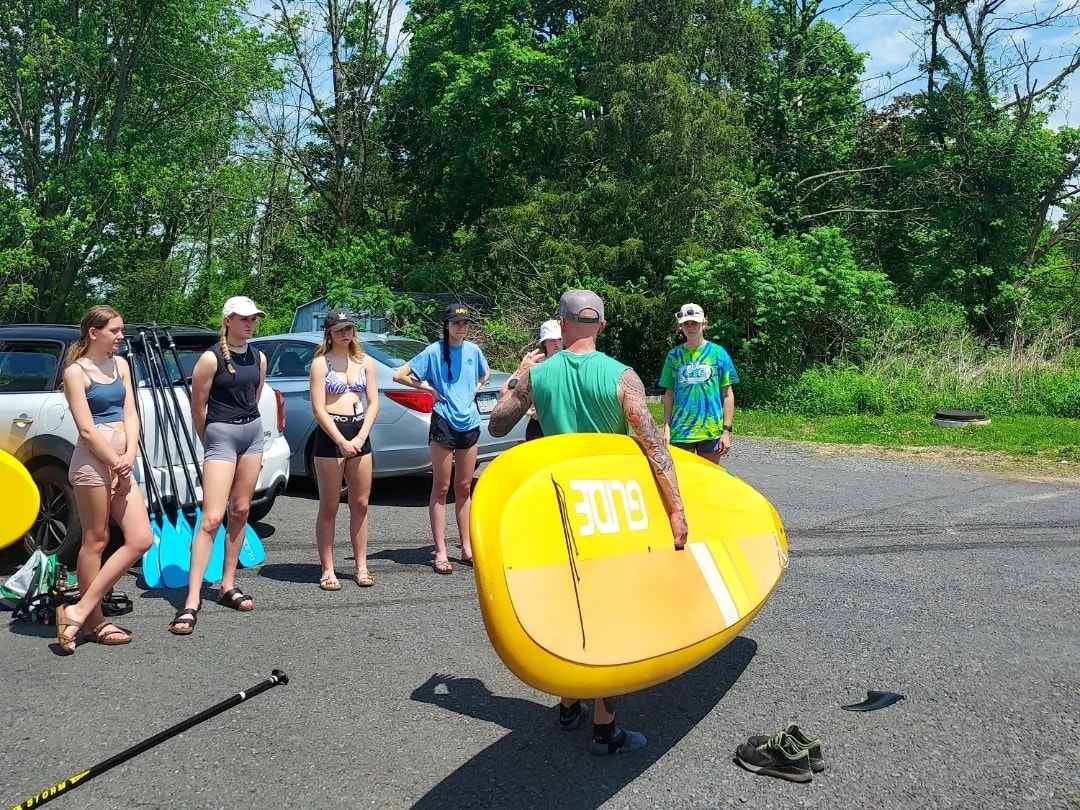
Stand Up Paddle Boarding and Water Safety: Understanding the Importance of Lifeguarding and First Aid Skills
Key Highlights
-
Essential Role of Lifeguarding: Lifeguards play a vital role in supervising water activities, enforcing safety rules, and educating participants on potential hazards, ensuring a safe environment for paddle boarders.
-
Importance of First Aid Knowledge: Paddle boarders equipped with first aid skills can effectively handle minor injuries and recognize signs of more serious conditions, contributing to overall safety on the water.
-
Selecting the Right Gear: Choosing appropriate SUP boards and gear, including PFDs and leashes, tailored to one’s skill level and conditions, is fundamental for a safe paddle boarding experience.
-
Developing Paddling Skills: Acquiring proper paddling techniques and understanding local water conditions enhance safety and enjoyment, making it crucial for paddlers to invest in learning and practice.
-
Knowing Your Limits: Recognizing and respecting personal skill levels and comfort zones prevents accidents, emphasizing the importance of paddling within one’s abilities.
-
Adaptive SUP for All Abilities: Adaptive techniques and equipment ensure that SUP is accessible and enjoyable for individuals with disabilities, showcasing the sport's inclusivity.
-
Lifeguard Presence in SUP Events: Lifeguards ensure participant safety in competitions and events through vigilant supervision, emergency response coordination, and assistance in distress situations.
Stand Up Paddle Boarding: A Fun and Exciting Water Sport
Stand up paddle boarding (SUP) has gained immense popularity in recent years, providing a unique and enjoyable experience on the water for people of all ages and skill levels. From flatwater cruising on lakes and rivers to catching waves in surf zones, paddle boards offer a full-body workout and can be adapted for various activities, such as yoga, fishing, and racing 1. To ensure a safe and pleasant experience, it's essential to understand the importance of lifeguarding and first aid skills when participating in this exciting water sport.
The Importance of Lifeguarding and First Aid Skills in Stand Up Paddle Boarding

Ensuring Paddler Safety on SUP Boards
Lifeguarding plays a crucial role in maintaining the safety of paddle boarders and other water users 2. Lifeguards are trained to prevent accidents by supervising and managing water activities, enforcing rules, and educating participants on potential hazards. With their skills in rescue techniques, CPR, and first aid, lifeguards are prepared to respond to emergencies quickly and efficiently, ensuring that everyone can enjoy the water safely.
Promoting Safe Paddling Practices on Paddle Boards
Understanding the basics of first aid can be invaluable for stand up paddle boarders, especially when venturing into more remote or challenging conditions 3. Paddle boarders should be familiar with essential first aid techniques, such as how to treat cuts, bruises, and sunburns, as well as recognizing and responding to signs of dehydration, heatstroke, and hypothermia. In addition, knowing how to perform CPR and use a personal flotation device (PFD) can make a significant difference in the outcome of an emergency situation on the water.
Water Safety Tips for Stand Up Paddle Boarding

Choose the Right Paddle Board and Gear
Selecting the appropriate SUP board and gear for your skill level and the conditions is essential for a safe and enjoyable experience 4. For beginners, it's best to start with a stable and wide board, while more experienced paddlers may opt for specialized boards designed for racing or surfing 5. A PFD, leash, and appropriate sun protection should always be worn, regardless of skill level or water conditions 6.
Develop Your Paddling Skills and Knowledge
Investing time in learning proper paddling techniques, board handling, and navigation skills can greatly improve your overall safety on the water 7. Beginners should consider taking lessons or joining a stand-up paddle boarding club to build their confidence and abilities 8. Additionally, understanding local weather, tides, and currents can help paddlers make informed decisions about when and where to venture out on the water.
Know Your Limits
It's essential to recognize your limitations and avoid pushing yourself beyond your skill level or comfort zone. Paddle boarding in conditions that are too challenging or attempting maneuvers that are beyond your abilities can lead to accidents and injuries. Always be mindful of your surroundings and adjust your activities accordingly.
Adaptive SUP Techniques and Equipment for All Abilities
Stand up paddle boarding can be adapted for individuals with disabilities or unique needs, allowing everyone to enjoy the benefits of this popular water sport 9. Adaptive SUP techniques and equipment can be tailored to suit various abilities, ensuring a safe and enjoyable experience for all participants.
The Role of Lifeguards in Stand Up Paddle Boarding Events and Competitions
Supervising and Assisting Participants
In organized stand up paddle boarding events and competitions, lifeguards play a crucial role in ensuring the safety of all participants. They actively monitor the water for potential hazards, provide assistance to paddlers in distress, and enforce safety rules and regulations. In some cases, lifeguards may also be responsible for setting up the course, managing water traffic, and assisting with event logistics to create a safe and enjoyable environment for competitors and spectators alike.
Coordinating Emergency Response Efforts
In the event of an emergency during a stand up paddle boarding event or competition, lifeguards are responsible for coordinating the response efforts, which may involve working with other lifeguards, event organizers, and emergency medical services (EMS) to ensure that the situation is handled quickly and effectively. Their knowledge of first aid, CPR, and rescue techniques allows them to take charge and provide immediate assistance to injured or distressed paddlers until further help arrives.
By incorporating these additional safety measures and working closely with lifeguards during events and competitions, stand up paddle boarding can continue to be an enjoyable and safe sport for everyone involved.
Conclusion

Stand up paddle boarding is a fun and versatile water sport that can be enjoyed by people of all ages and skill levels. Ensuring paddler safety through lifeguarding, first aid skills, and safe paddling practices is essential to create a safe and enjoyable environment for everyone.


